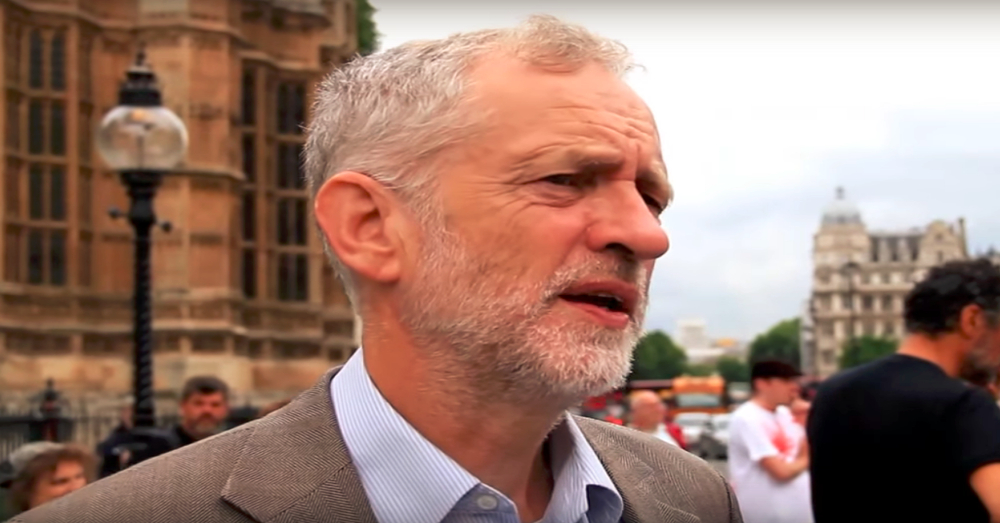
Brits Can Vote for Their Bernie Sanders as Jeremy Corbyn Successfully Speaks Truth About the ‘War on Terror’
Against an unprecedented wave of smears, the socialist Labour leader has bucked the consensus and slashed his opponent's lead.
May 31, 2017 | Source: Alternet | by Ben Norton and Max Blumenthal
This June 8, British voters will decide whether or not to continue with the conservative status quo, or take a chance on a new kind of left-wing politics that would represent a firm break with the orthodoxies of the ruling Conservative Party and the Labour Party’s establishment wing.
Jeremy Corbyn, the Labour Party’s intrepid new socialist leader, has pledged to drastically change his society. His party’s leftist manifesto calls for more funding for the socialized health care system, nationalizing the country’s tattered railways and putting a stop to massive cuts in social spending.
Yet Corbyn has also taken a step further than others in his party have dared, pledging to do what to many progressives remains a shibboleth: oppose war and imperialism and limit the violent blowback they have caused back home.
The liberal political establishment in the U.S. and across Western Europe has uncritically supported wars from Iraq, to Libya, to the push for regime change in Syria, often in the name of humanitarianism and “civilian protection.”
While many progressives have portrayed the so-called War on Terror as an unfortunate but necessary evil, Corbyn has made a crucial break with the norms of the political establishment, condemning the imperial wars the West has waged and emphasizing that this military intervention has only fueled the violent extremism the British government claims to be combating.
A new series of polls shows Corbyn has slashed Prime Minister Theresa May’s enormous lead to just 3 points, and has surged ahead of her in London.
Manchester Attack and Government Complicity
On May 22, a man detonated a suicide bomb at a concert in Manchester, England, killing two dozen civilians and wounding more than 100, many of them children. The Salafi-jihadist group ISIS took credit for the attack.
Salman Abedi, the attacker, was a British citizen — not a refugee — from a family that was part of the Western government-backed right-wing Libyan opposition to longtime leader Muammar Qaddafi.
As Max Blumenthal detailed in an article on AlterNet, the British intelligence services played a direct role in supporting Islamist militancy in Libya, working closely with the Al Qaeda-affiliated Libyan Islamic Fighting Group (LIFG) in a cynical bid to topple Qaddafi. When NATO escalated 2011 protests in Libya into an explicit regime change operation, the U.S. and U.K. governments encouraged foreign fighters to travel to the North African nation to help fight. Among those who took the MI6 ratline from Manchester to Libya was Ramadan Abedi, the father of the bomber.
During her tenure as Home Secretary, Theresa May was in charge of overseeing MI6 operations. It was during this time that Libya was flooded with fighters from the U.K., with passports being handed even to British-Libyan citizens under government control orders for their alleged ties to extremist groups.
According to Akram Ramadan, a mechanic from Manchester who fought with the LIFG, roughly three-quarters of all foreign fighters in Libya arrived from his hometown in Britain.
With Ramadan Abedi on the Libyan front lines, his children eventually followed in his footsteps. His youngest son, Hamza, arrived in the country and joined up with an ISIS affiliate, while Salman took a trip to Libya just days before the bombing. Abedi had also reportedly visited Syria, apparently to make common cause with the jihadist groups battling the Syrian government with arms and support from the West and its Gulf allies.
In the past, right-wing politicians have successfully exploited terror attacks like the kind carried out in Manchester, stoking fear and anti-Muslim bigotry to shift public opinion. Jeremy Corbyn, a left-wing anti-war stalwart, upended the dynamic by introducing a counter-narrative that challenged violent extremism at its roots.
While many liberals spoke of the bombing as a mere tragedy, whitewashing its politicized nature, Corbyn pointed his finger at interventionism and empire.
